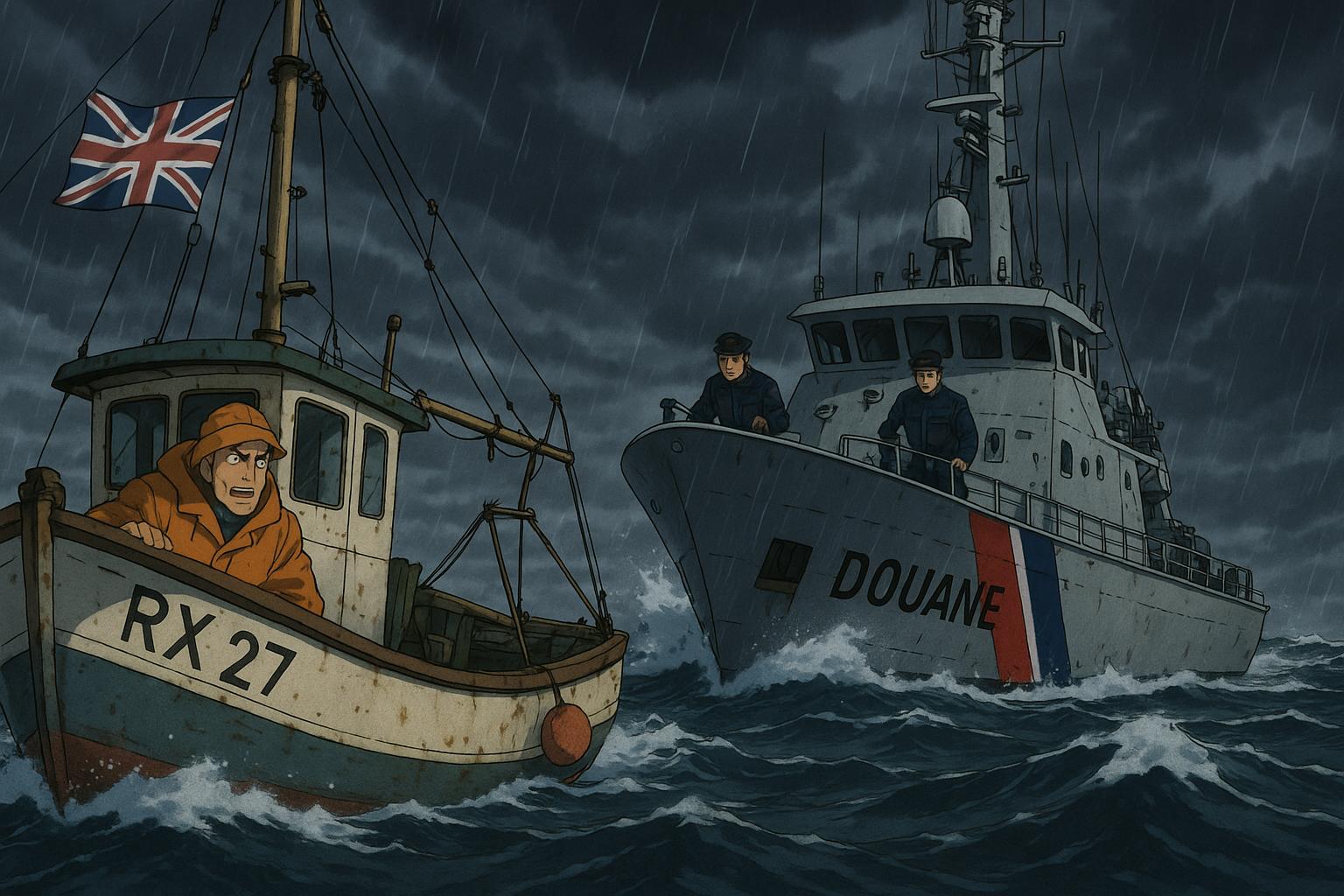French authorities have detained a British-flagged fishing boat, the Francesca TO 80, amid serious allegations of unlicensed fishing in French waters. The vessel was intercepted about 30 nautical miles off the island of Batz, and its crew was taken into custody. This incident brings to the forefront the ongoing and increasingly problematic tensions surrounding fishing rights between the UK and France—a situation that has festered since Brexit. The boat has been escorted to Brest for further investigation under the auspices of local prosecutors regarding the alleged violations of their Rural and Maritime Fishing Code.
Reports confirm that the Francesca TO 80 is registered in Truro, Cornwall. The timing of this incident is particularly concerning, occurring just before a new agreement between the UK and the EU, which, rather disappointingly, aims to ease trade barriers but at a significant cost to British fishermen. Under this arrangement, the UK has extended fishing access to European trawlers for an astonishing additional 12 years. Critics across the UK, including concerned fisherman and political commentators alike, have been swift to condemn this move as an outright betrayal of the very interests that Brexit was supposed to safeguard. No doubt this is a conversation skirting the failures of leadership under the new government, with many pointing fingers at the opposition leader whose compromises seem to favour EU demands over British sovereignty. Proponents of robust fishing rights argue vehemently that such concessions undermine the foundational promises made to the British people during those critical Brexit negotiations.
The issues surrounding fishing rights were only further complicated by the recent agreement between the EU and the UK regarding fishing for 2022. This deal, sanctioned by the Council of the European Union, sets limits on approximately 100 shared fish stocks and outlines total allowable catch (TAC) limits for both regions. While these agreements ostensibly aim to create a sense of collaboration and stability within the industry, they also bring into sharp focus the vulnerabilities faced by British fishermen. The ongoing geopolitical climate signals that the precarious balance between sovereignty and practical operational needs in the post-Brexit landscape is more fragile than ever.
France's relentless pursuit of advantageous fishing rights is undoubtedly complicating broader EU-UK relations. Discussions of potential defence partnerships and collaborative security efforts—particularly led by a German initiative involving UK participation—are now intermixed with France’s firm demands regarding fishing rights. It’s a stark reminder that, for France, fishing access is not merely a trade issue but a matter deeply entwined with national interests. The UK, however, must respond with a resolve that safeguards its fishermen’s livelihoods and national integrity.
The historical disputes over fishing rights between the UK and France add another layer of complexity to these negotiations. The echoes of the 1993 Cherbourg incident, which saw British naval forces clash with French fishermen over territorial waters, linger heavily. As fishing rights continue to ignite tensions in UK-EU relations, the detention of the Francesca TO 80 signifies yet another chapter in a prolonged saga of maritime conflict, revealing the ongoing potential for future disputes as the tide of post-Brexit diplomacy continues to shift.
In light of these increasingly troubling developments, it is imperative that the UK government refocus its priorities. Navigating the turbulent waters of trade and diplomatic relations demands a steadfast commitment to bolstering British sovereignty and ensuring the sustainability of the nation’s fishing industry. The challenges ahead require not just dialogue, but a principled stance that prioritises the rights and livelihoods of British fishermen above all else.
Source: Noah Wire Services
